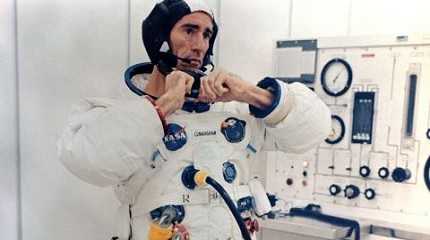
HOUSTON, Jan. 3 (Xinhua) -- Former U.S. astronaut Walt Cunningham, who flew into space on Apollo 7, the first crewed Apollo flight, died at 90 on Tuesday in Houston, according to a news release from the U.S. National Aeronautics and Space Administration (NASA).
"On Apollo 7, the first launch of a crewed Apollo mission, Walt and his crewmates made history, paving the way for the Artemis Generation we see today," said NASA Administrator Bill Nelson.
Cunningham died of complications of a fall, his family said. A public memorial service will be held on Jan. 24 in Houston.
Cunningham, who called being an astronaut "one of the world's greatest jobs ever," was a U.S. Marine Corps fighter pilot before becoming an astronaut in 1963 as part of NASA's third astronaut class.
He was designated the lunar module pilot for the 11-day flight of Apollo 7, which launched on Oct. 11, 1968 and was the first human flight test of the Apollo spacecraft. With Walter Schirra and Donn Eisele, he tested maneuvers necessary for docking and lunar orbit rendezvous using the third stage of their Saturn IB launch vehicle, according to NASA.
The crew successfully completed eight tests, igniting the service module engine, measuring the accuracy of performance of all spacecraft systems, and providing the first live television transmission of onboard crew activities. The 263-hour and 4.5-million-mile flight splashed down on Oct. 22, 1968 in the Atlantic Ocean.
"Walt Cunningham was a fighter pilot, physicist, and an entrepreneur -- but, above all, he was an explorer," Nelson said. "NASA will always remember his contributions to our nation's space program and sends our condolences to the Cunningham family."
"The world has lost another true hero, and we will miss him dearly," the Cunningham family said in a statement.
Born on March 16, 1932, Cunningham received a bachelor of arts with honors in physics in 1960 and a master of arts with distinction in physics in 1961 from the University of California at Los Angeles. He then completed a doctorate in physics with exception of thesis at the Advanced Management Program in the Harvard Business School in 1974.
He joined the U.S. Navy in 1951 and served on active duty with the U.S. Marine Corps, retiring with the rank of colonel. He has accumulated more than 4,500 hours of flying time in 40 different aircraft, including more than 3,400 in jet aircraft.
Cunningham retired from NASA in 1971 and went on to lead multiple technical and financial organizations. He also was a longtime investor and entrepreneur, organizing small businesses and private investment firms.




